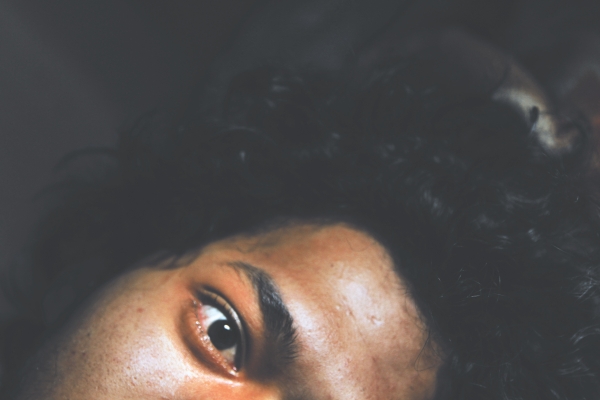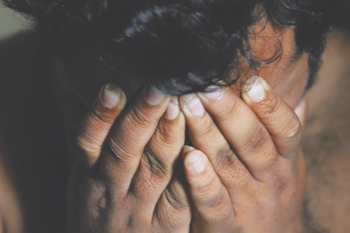| Home - Back Issues - The Team - Contact Us |
 |
| Volume 11 |Issue 10| March 09, 2012 | |
|
|
Perspective
The Mad Man's Plight Anika Hossain Life is difficult for the mad man in Bangladesh. In other developing/developed countries in the world, if you're mentally unsound you live on welfare, you get social security, the government gives you food stamps and in some cases the state is mandated to provide you with a decent place to live. If you commit a crime as a result of your symptoms, you are institutionalised and not imprisoned. In Bangladesh, if you've lost control of your mental faculties, everyone close to you will deny it till you actually run around the streets creating havoc. Even if they do admit it, they will refuse to take you to a psychiatrist and instead take you to a “faith healer,” and try to exorcise the evil out of you. Failing that, they will either lock you up (if you're lucky) or disown you and take over your property. If you commit a crime, you will get a public flogging or end up in jail. Despite the fact that research shows around 30 percent of people in this country who visit general practitioners actually suffer from a mental illness, for some reason their needs are completely overlooked. It's as though ignoring them will somehow make the problem go away. A shining example of this is the law we have in place, protecting the rights of mentally ill patients. For one thing, it was established in the year 1912 by the British, that too to make sure that mental patients were locked up in asylums and not in prisons. While this was quite progressive back in the day, we fail to notice that it has been a while and perhaps it is time to move forward.
Our savvy neighbours, India and Pakistan have long since established new laws, but we lag behind. The name of The Lunacy Act of 1912 in itself is a violation of human rights as the term “lunatic” is downright derogatory. However, the law does state that a mentally ill person who has committed a legal offense cannot be sentenced until they are in a condition to understand the nature of their crime and the court proceedings. Until then, they should be placed in safe custody and treated for their illness in a way that the district magistrate considers suitable. “When a person is insane, they must be institutionalised and this is the law,” says Dr Sumaiya Khair, Professor of Law at Dhaka University. Unfortunately, the practice is quite different from the law and in many cases when a person with a chronic psychotic illness commits a crime, they are sent straight to the prison cell. “This is because of the lack of clarity regarding the person's mental condition or knowledge about his or her particular illness. A number of these people will be sent to jail,” comments Khair. “Persons with psychotic problems such as schizophrenia or bipolar disorder or personality disorders etc have very little insight into their condition,” says a psychiatrist who wishes to remain unnamed. “Some of these illnesses are characterised by delusions (false beliefs), hallucinations and extreme paranoia which prevent the patient from thinking lucidly. In such cases, sending them to prison for a crime they do not realise they committed is inhumane. My colleagues and I worked with a client who is schizophrenic and was brought to us for treatment from the central jail. He was escorted by prison guards when he came to us. He missed appointments regularly because the authorities did not seem to care much about his recovery. Our sessions did very little to help him because his condition deteriorated everytime he went back to prison. My guess would be they were not giving him his medication regularly either,” he shares. According to Khair, the prison environment is not conducive to recovery or to even maintain a balance in the person's life. “Just like a minor cannot be taken to jail despite the fact that he has killed a person, he is debarred by age of minority, similarly, by reason of lunacy a person is debarred to be treated the same as a person of sound mind by the criminal justice system,” says Khair. “He is not in a position to take rational decisions and does not understand the consequences of his actions. However, in Bangladesh, they are often sent to prison. This is because some patients, due to the lack of understanding of their illness on the caregiver's part, manage to talk their way out of institutions. So there is a risk of them coming out in society and trying to do harm again. So the parties involved, the judges and also the people litigating prefer that the person be incarcerated. There are provisions where a mentally imbalanced person is not even sentenced. They are not capable of thinking for themselves, making decisions so they plead insane to get out of capital punishment, so they are taken to prison or long-term incarceration. This is frequently practiced.” According to Dr Ahmed Helal who has worked extensively with mentally ill convicts, when a person pleads insanity, they must go through rigorous tests by court appointed experts in order to prove their claim. “Once they have done this, the court decides the manner in which they will be treated until they are ready to be sentenced,” says Helal. “We have three types of treatment for the criminally insane. We treat the illness, treat for the trail and treat for the sentence. The Lunacy Act states that the patient must be put in an asylum, however there are only two asylums in Bangladesh and they are already overcrowded, so the patients are either sent to public or specialised hospitals to be treated until they are ready to be tried or they are sent to the prison hospital,” he explains. During their stay at the hospitals, they are examined at regular intervals by a board of three forensic psychiatrists, who decide when they should be tried in court. “I work with patients suffering from depression, personality disorders and schizophrenia,” says Helal, “They commit the crimes because of their illness and nothing else. I can see that they are given medication properly in prison. Some stay in the jail hospital until they are fit to live with the other prisoners without being a threat to themselves or their fellow inmates. We recommend that they are kept separately.” Helal talks of a new Mental Health Act which has been drafted a number of years ago, but is yet to be approved by the government. “This act incorporates laws that protect the rights and needs of the mentally ill population, unlike the archaic Lunacy Act which mainly deals with property rights.” Now whether a mentally ill patient's condition deteriorates in prison is something which is subjective for the prison officials under whose care they are placed. “If there is follow up and proper care then they may improve but majority of the time,” says Khair ‘If the family does not come up with some money to ensure their care in prison, they deteriorate. I personally know a family that provides extra money to keep him in a separate cell and give him the medication that he needs. If you leave it up to the prison officials, it is likely they will not do this with proper precision.” Under the current laws, mentally ill criminals cannot be sentenced to death. However, they are also placed in custody under the care of prison officers who barely understand their state of mind. These people are trapped inside their heads, unable to understand their surroundings, and unable to control their actions. What they need is proper medical facilities, medicine and counseling in a safe, comforting environment. The last thing they need is to be locked away in hostile surroundings. Our constitution states that all citizens will be treated equally under the law. Let us hope that the government remembers this and take a minute to approve the draft that human rights activists and mental health professionals have worked endlessly to prepare so that these unfortunate people finally get the help they are so badly in need of.
|
||||
Copyright
(R) thedailystar.net 2012 |

